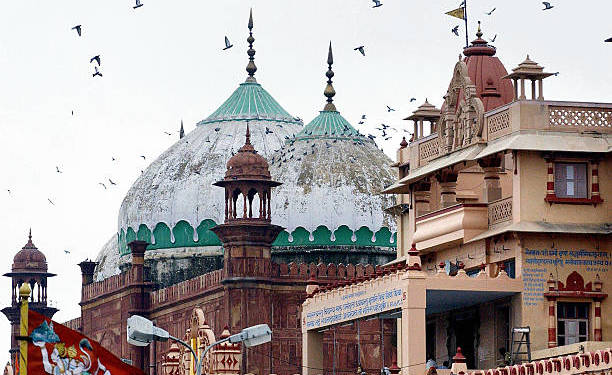If the Places of Worship Act, 1991 was not already enough of a hindrance for Hindu devotees to reclaim the Keshavnath Mandir at Mathura in its entirety, the respondents to a plea appealing against the dismissal of a petition seeking the removal of the Shahi Masjid from the Shri Krishna Janmabhoomi have asked for a fresh date to make further arguments.
The Court was to pronounce the verdict on Monday. However, the Mathura District and Sessions Judge Sadhna Rani Thakur had reserved her order on the plea on January 11. Now, the respondents – which are the Muslim side to the case, have been listed to make further arguments on January 18.
What was witnessed at the Mathura court on Monday was a classic delay tactic employed by the pro-Shahi Masjid side, seeking to argue beyond the stipulated time over the maintainability of the appeal filed by the Hindu side representing the side of Krishna Janmabhoomi.
Meanwhile, besides challenging the dismissal of their original plea by a senior civil judge, the Hindu devotees on behalf of Bhagwaan Shri Krishna Virajmaan have sought an order to the mosque management to “remove the construction raised by them ‘encroaching’ upon the land within the area of the Katra Keshav Dev temple.”
From the long legal battle which Hindus have had to fight for the reclamation of Ram Janmabhoomi at Ayodhya, it would have been at least expected that for the reclamation of Shri Krishna Janmabhoomi, the community would not be made to undergo another spate of an unending wait. Yet, the respondents (Muslim side) seem to be doing exactly that – delaying the legal battle for the reclamation of the holy land at Mathura atop which the Shahi Masjid, built by tyrant Aurungzeb, stands.
The idea really is to tire the Krishna Janmabhoomi side all over again by engaging in a never-ending legal battle on the matter. Like in the case of Ram Janmabhoomi, delaying the matter helped the proponents of the Shahi Masjid to mould conditions to their favour, like getting a government which works overtime to protect their interests, while trampling over the rights of Hindus. That, as is evident currently, is not the case now.
In Uttar Pradesh, the Yogi-led government is unapologetically supportive of reclaiming ancient Hindu temples. The Modi government too, as seen in the past six years, has worked to fast-track the Ayodhya dispute and push it to its logical conclusion in 2019.
As much as intellectuals and “narrative-moulders” of the country attempted to vilify the Hindu community for wanting to reclaim its most important temples like in the case of Krishna Janmabhoomi in Mathura, evidently, their efforts yielded close to no efforts ever since the Modi government stormed to power.
Why did Kapil Sibal, before the 2019 general elections, bat for the Supreme Court to pronounce its verdict only after the polls? Due to the simple fact that the Congress was hopeful of somehow coming back to power, thereby stalling the Ram Janmabhoomi case to eternity once again.
The conditions, to put it bluntly, are simply not favourable for the Shahi Masjid to continue existing on encroached land without being asked to vacate. Now while it can enjoy the breather given to it, the Muslim side must understand that the Krishna Janmabhoomi dispute will be very difficult for them to drag on like the Ram Janmabhoomi one.
